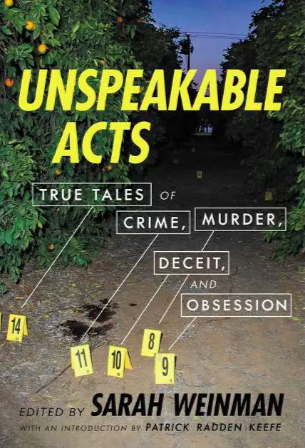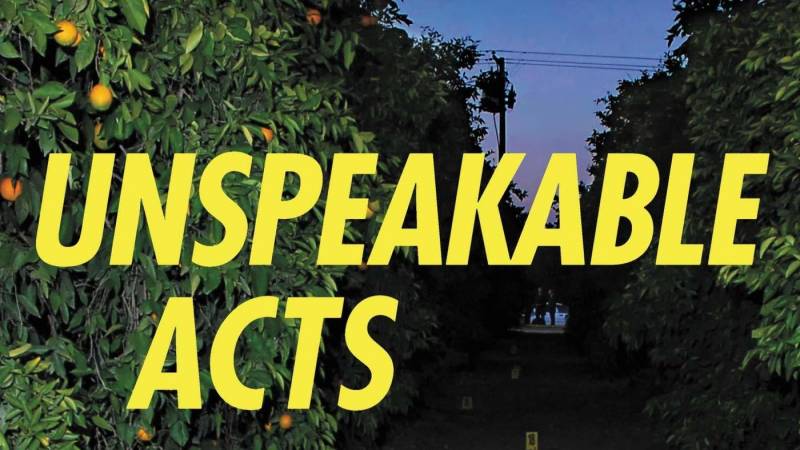Unspeakable Acts, edited by author, editor and critic Sarah Weinman, works as both a superb collection of true crime writing and a text that looks at the nuances of our collective obsession with horrific murders, con men and serial killers in a historical and cultural context.

Those looking for titillating, gruesome chronicles of human depravity will find much to like here—and those who want great, smart writing and outstanding research that unveils things we would rather not look at under a microscope will be equally satisfied.
That Unspeakable Acts is more than a collection of true crime stories is clear from the introduction, where Weinman states:
“The fascination with murder and illegality is a perennial one, because the shock of the deed creates a schism between order and chaos. We wish for justice, but even when we get it, the result rings somewhat hollow.”
In the pages that follow, the search for answers is one of many cohesive elements that make this nonfiction anthology one of the best true crime books of the year. The other three main elements—great writing, meticulous research and fearless engagement with the psychological, cultural and emotional aftermaths of extreme violence and murder—make this anthology inhabit an interstitial space between personal writing and academic analysis.
There are recent cases here, like that of Dee Dee and Gypsy Rose Blanchard, a mother-daughter duo that lied about Gypsy’s health issues for years and tricked a lot of people in the process before it all ended in murder (Gypsy pled guilty to second-degree murder and was sentenced to 10 years in prison in 2016). There are also older cases. For example, one of the standouts in the book is Sarah Marshall’s “The End of Evil,” which takes a personal look at Ted Bundy through the lens of a woman who wants to understand the serial killer and looks for answers while deconstruction psychological profiling as well as psychopathy as something that equals “pure evil.”

9(MDAxOTAwOTE4MDEyMTkxMDAzNjczZDljZA004))

